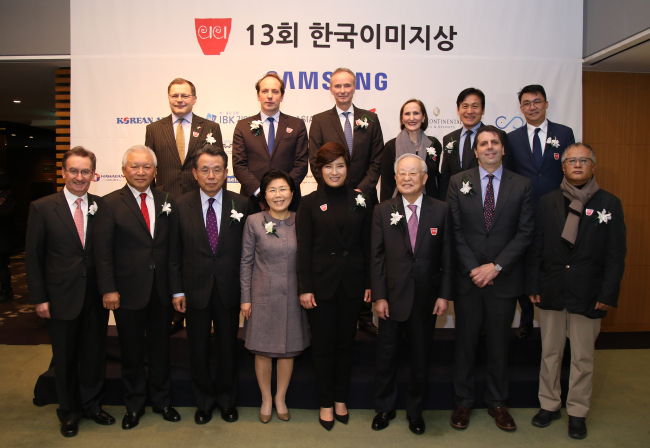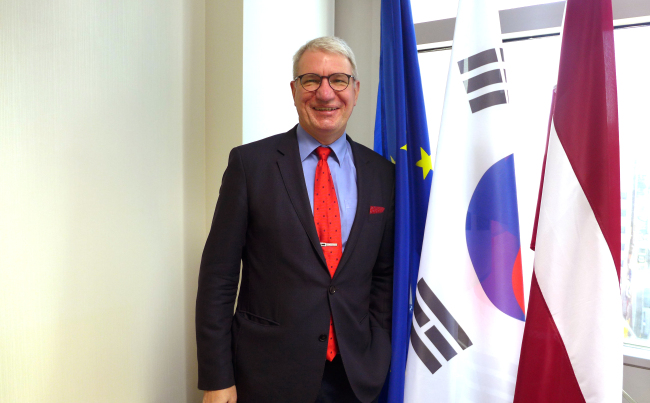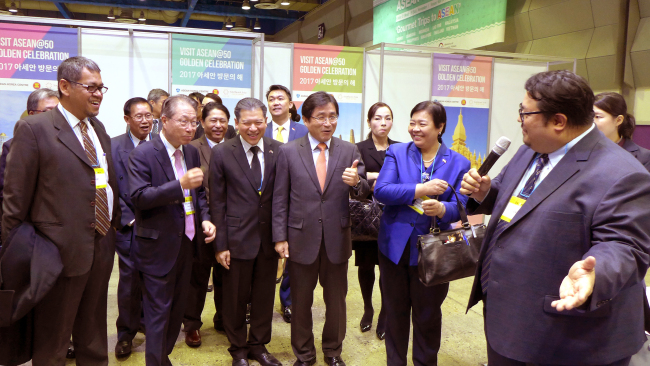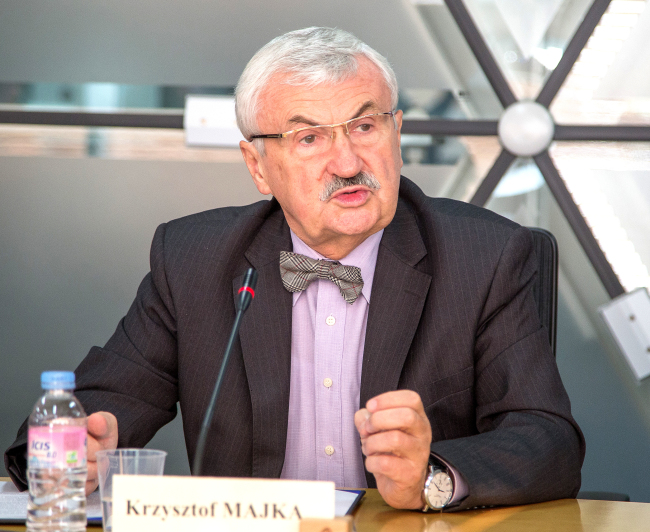As the realm of diplomacy increasingly engages the public at large, culture is being writ large in the vocabulary and method of foreign affairs experts around the globe.
One of the major tasks of diplomats is mastering the art of public diplomacy -- employing the allures of visual art, music, literature and performing arts -- in a world increasingly interconnected culturally, according to Latvian Ambassador to Korea Peteris Vaivars.
One of the major tasks of diplomats is mastering the art of public diplomacy -- employing the allures of visual art, music, literature and performing arts -- in a world increasingly interconnected culturally, according to Latvian Ambassador to Korea Peteris Vaivars.

“It’s impossible to start any business if there is no mutual interest in each other’s culture,” the envoy said at the 2017 Korea Image Award ceremony in Seoul last week. “The interest develops from travel, food, culture and the arts, and thrives into business. Culture cannot exist by itself. It develops by interacting with other cultures.”
The event, which attracted more than 700 opinion leaders, including some 60 ambassadors and diplomats, was organized by the Corea Image Communications Institute, a nonprofit organization dedicated to promoting Korean culture worldwide.
Noting that traditional Korean culture is much less known in the world compared to its Chinese and Japanese counterparts, Vaivars said Korea could expose different layers of its culture to diverse audiences.
Latvia, a small Baltic state of 2 million people, has a rich tradition of music and singing, with 3 million folk songs that have been recorded and digitalized, he said. Some are listed as UNESCO World Intangible Heritage, and many Latvian singers perform in metropolitan operas around the globe, the ambassador added.
As 2018 marks the centennial of Latvia’s republican anniversary, the embassy plans to introduce the country’s music to Korea.

“Many Thais who don’t speak Korean sing Korean songs by heart and watch Korean dramas and movies,” Thai Ambassador to Korea Sarun Charoensuwan told The Korea Herald. K-pop concerts are sold out in Thailand, he noted, adding that the popularity “must have something to do with the Korean culture’s attractiveness.”
Highlighting the 50th anniversary of the Association of Southeast Asian Nations this year, Charoensuwan said all ASEAN embassies in Korea, in partnership with the ASEAN-Korea Center in Seoul, are planning various culinary, fashion and tourism events to raise the region’s profile here.

Polish Ambassador to Korea Krzysztof Ignacy Majka said Poland and Korea -- both having similar histories of occupation and suffering -- share similar “emotional sensitivities” that manifest themselves in various cultural forms.
“Geographically we are distant, but our music, literature and sentiments are very similar,” he argued. “I have been trying to understand where such similarities come from. I think they flow from our turbulent histories and from our genuine hearts.”
Polish films, which form a key pillar of European cinema, have gone through different stages since the end of World War II, from reflecting on the war’s origins and horrors to societal reconciliation and progress into the future, according to Majka.
“My favorite Polish director is Krzysztof Kieslowski (1941-96), who directed classics such as the ‘Three Colors’ trilogy (1993-1994), ‘The Double Life of Veronique’ (1991) and ‘Dekalog’ (1989),” he said.
“His films are very reflective, not easy ones. You can’t just enjoy them in the cinema and forget later on. They are so deep and penetrating that you always come back to them to try to develop your own understanding.”
By Joel Lee (joel@heraldcorp.com)

-
Articles by Korea Herald





![[Music in drama] Rekindle a love that slipped through your fingers](http://res.heraldm.com/phpwas/restmb_idxmake.php?idx=644&simg=/content/image/2024/05/01/20240501050484_0.jpg&u=20240501151646)




![[New faces of Assembly] Architect behind ‘audacious initiative’ believes in denuclearized North Korea](http://res.heraldm.com/phpwas/restmb_idxmake.php?idx=644&simg=/content/image/2024/05/01/20240501050627_0.jpg&u=20240502093000)








